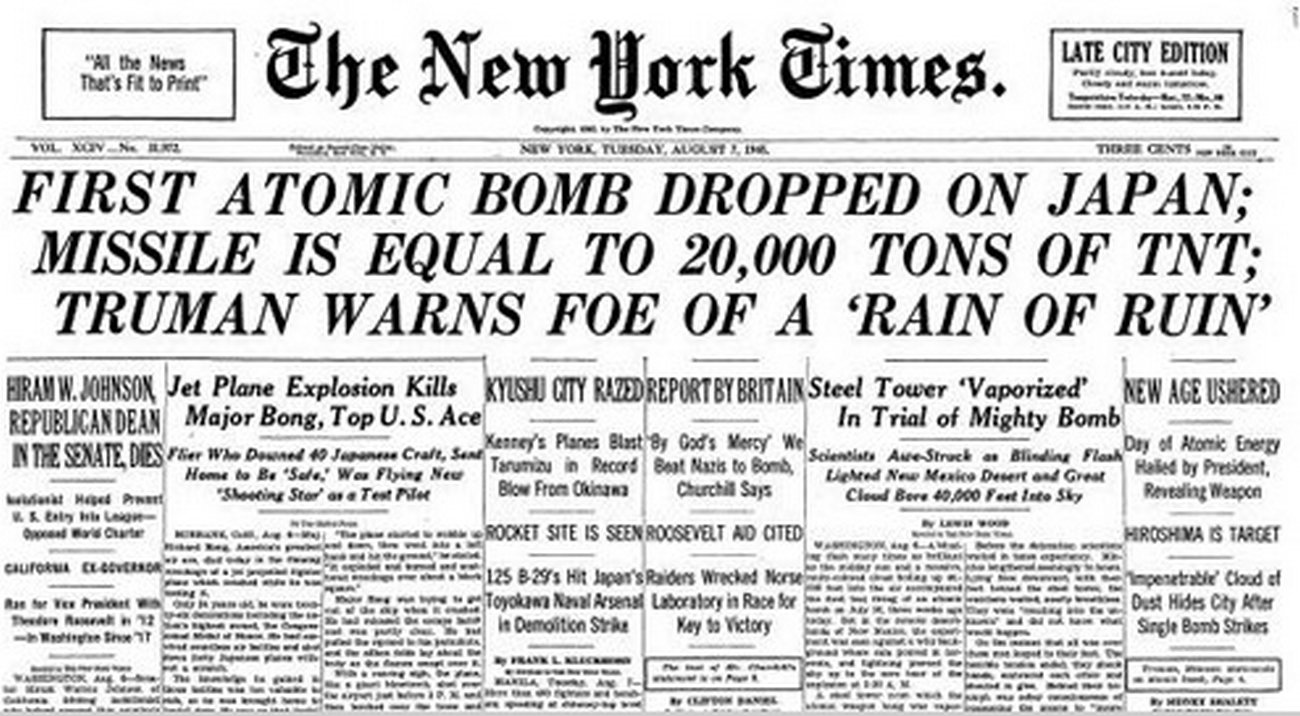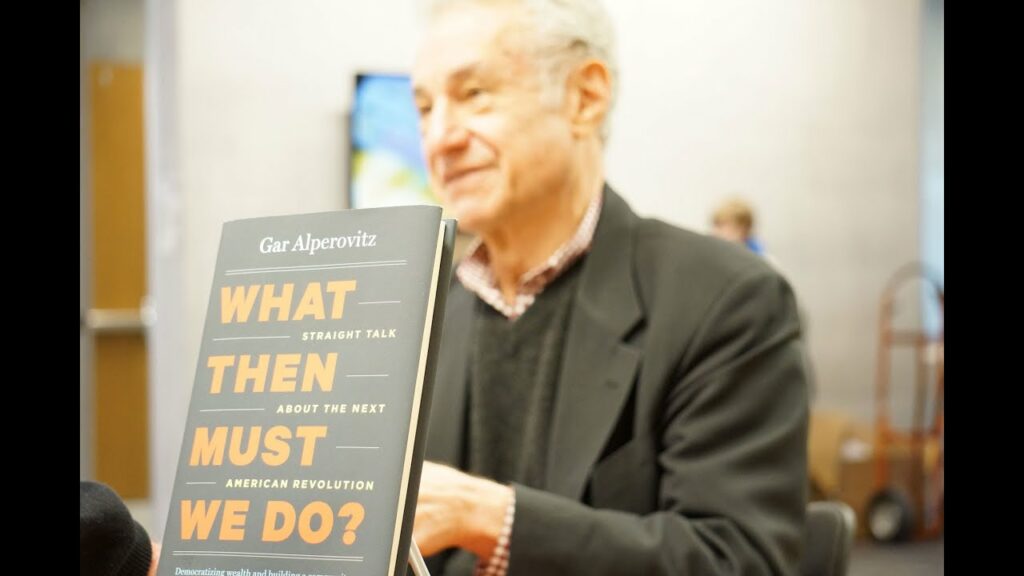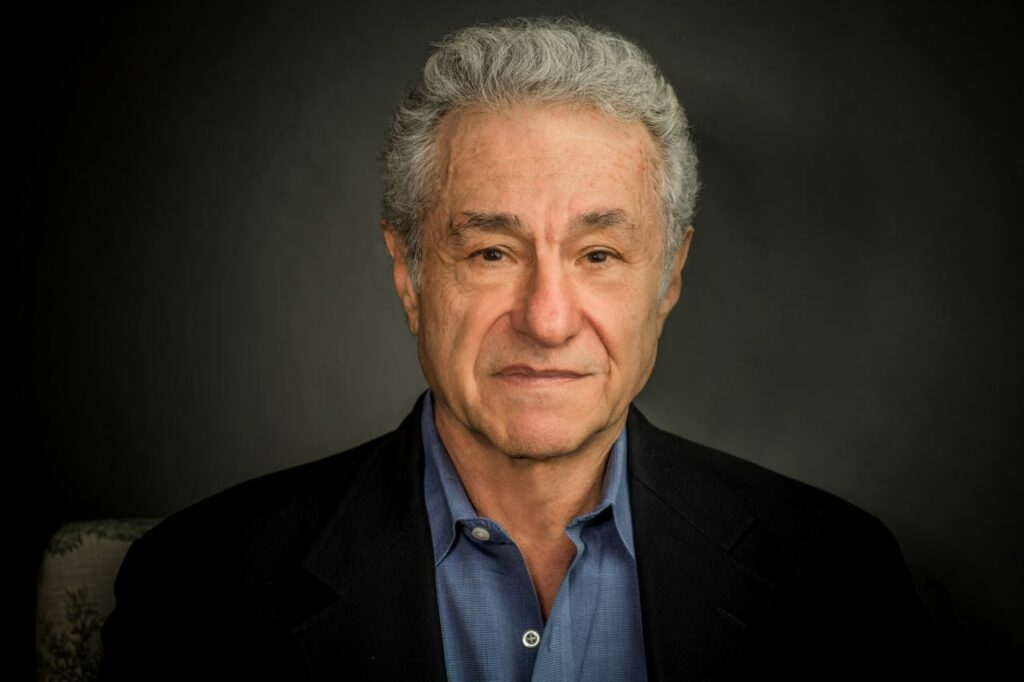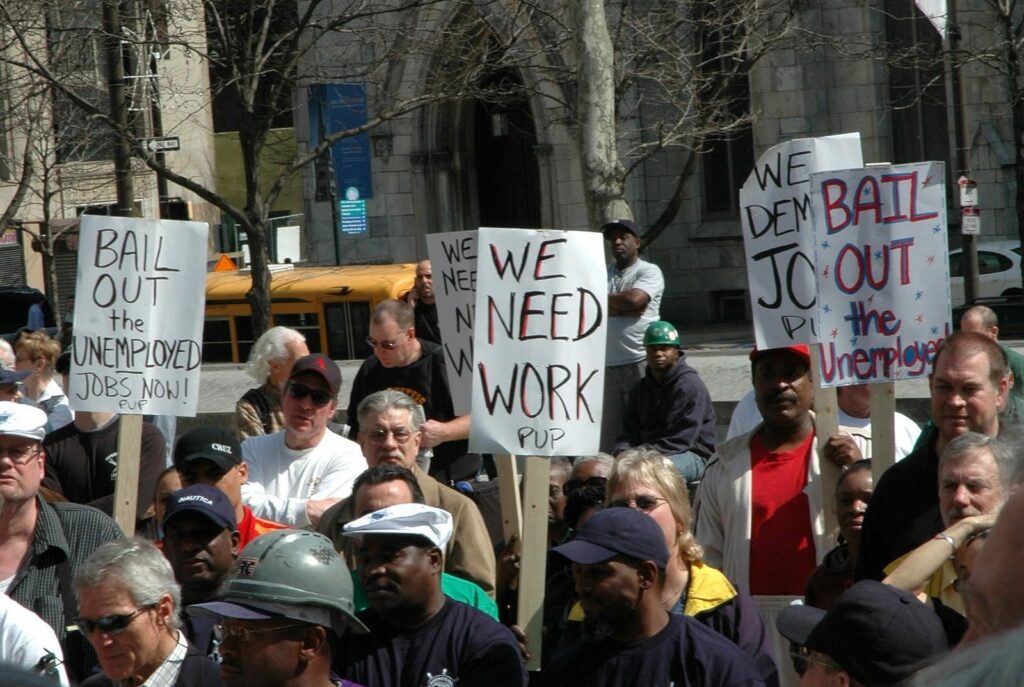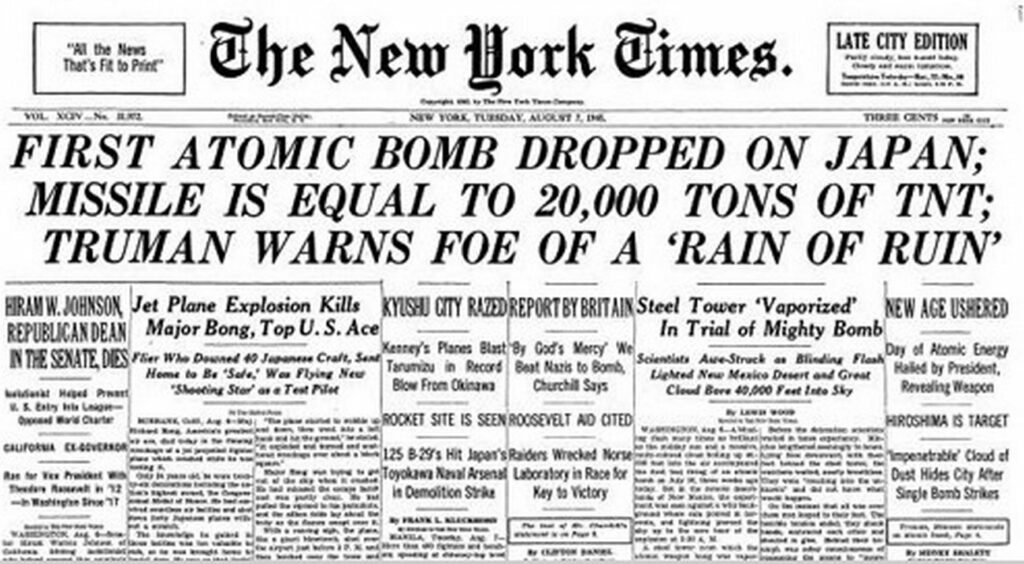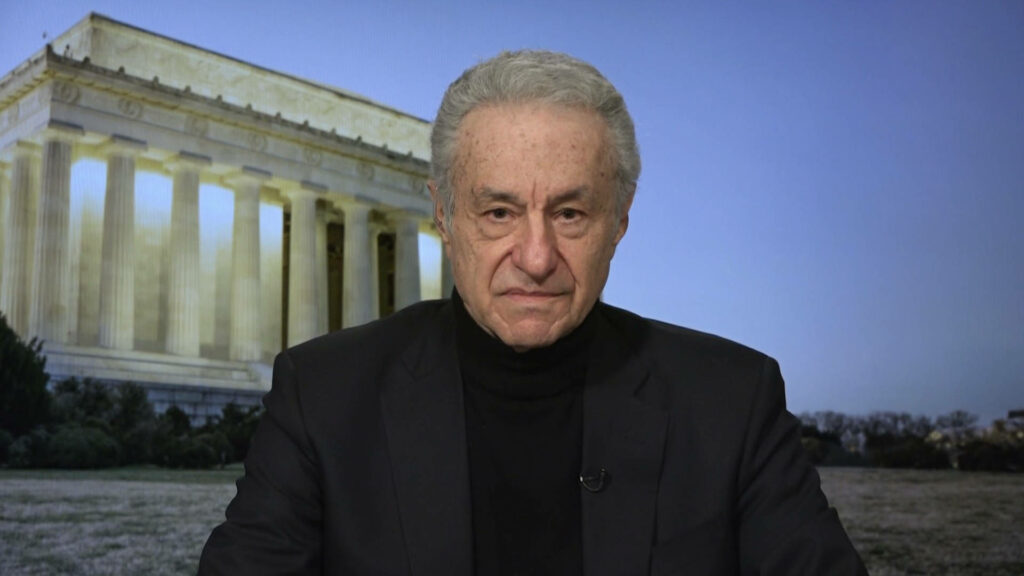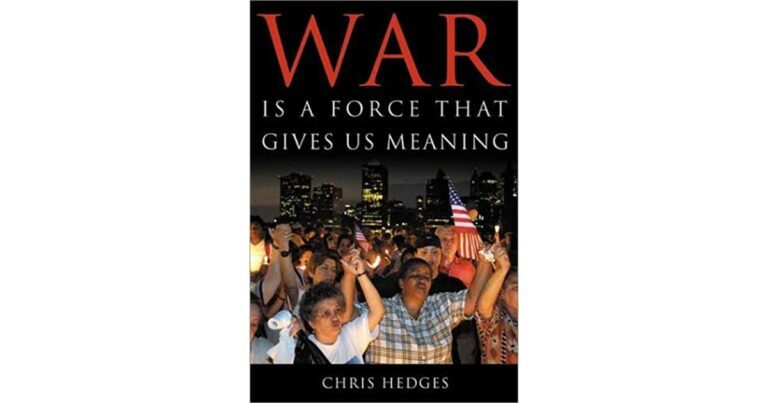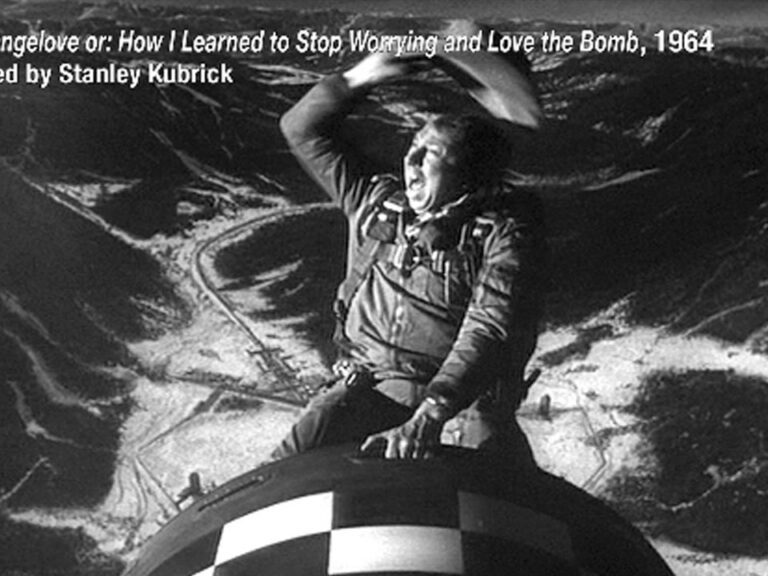This interview was originally released on January 24, 2014. Mr. Alperovitz tells Paul Jay that President Truman used the A-bomb to make a “diplomatic” point to the Soviet Union, not out of military necessity.
PAUL JAY, SENIOR EDITOR, TRNN: Welcome back to The Real News Network. I’m Paul Jay in Baltimore.
This is Reality Asserts Itself. We’re continuing our series of interviews with Gar Alperovitz.
Now, this series is going to be primarily about America after capitalism, which is a book that Gar wrote, and we’re going to take a look at what his thinking is on that. But Gar, as we learned from part one–and if you haven’t watched part one, you should–he wrote a PhD thesis and then a book that led to a whole reopening of the debate or discussion about just why America dropped the nuclear bomb that ended the war with Japan after World War II. And we’re going to do one segment on the basic outline of that thesis, and a little bit more about how that affected his thinking.
So thanks for joining us again, Gar.
GAR ALPEROVITZ, COFOUNDER, DEMOCRACY COLLABORATIVE: Thanks for having me.
JAY: And one more time, Gar is the Lionel R. Bauman Professor of Political Economy at the University of Maryland and the cofounder of the Democracy Collaborative. He’s also the author of several books, including America beyond Capitalism, The Decision to Use the Atomic Bomb, and his most recent, What Then Must We Do? Straight Talk about the Next American Revolution.
So thanks for joining us again.
ALPEROVITZ: Thank you.
JAY: So let’s jump to the chase about the bomb. Your basic thesis was that Japan had already–essentially was ready to negotiate its surrender, and the bomb was not necessary to end the war. The contrary narrative is the bomb saved thousands of American lives, and this is war, and this is what you do in war in order to save your soldiers.
ALPEROVITZ: Yes. I think it’s very clear now that the atomic bomb was totally unnecessary. The reason I say that is the intelligence studies which were available to the president in July 1945–the bomb was used in August–said very clearly that when the Russians entered the war in Japan–and we had asked them to come help, and they were about to help, the first week of August–that’s the date they were supposed to come in. When that happens, this will precipitate a collapse and a crisis in Japan. They’re already trying to get out of the war. They know they can’t face the Russian army and us. That will end the war. The only thing you need to do is be sure to say you’re not going to harm their emperor, because he’s a god in their culture. And if you give that kind of assurance when the Russians come in, the war is over. American policy leaders understood that. They know that. Every historian whose studied it knows these documents are now available. So they had it available.
And more important than that, the invasion, which might have cost 25,000 lives, 30,000–that’s the estimates (it was later exaggerated to 1 million)–couldn’t take place for another three months because of the weather, because of getting troops. So it was easy to test whether or not the intelligence was correct. The Russians were coming in. And we knew they were going to–everyone said that the war was going to end. That was the top military understanding. And they used the bomb anyway.
So I think that’s–the story is pretty clear now. Most historians know the bomb was unnecessary. There is a big debate about why it was used.
JAY: Well, that was my next question. So if it’s to make a political point, what’s the point?
ALPEROVITZ: Well, the documents are less clear about this, but what looks to be–there are many, many documents that say, look, this is going to give me “a hammer on those boys”, meaning the Russians. That’s the president talking. Another one says this is the–.
JAY: This is Truman.
ALPEROVITZ: Truman. His secretary of war says, this is the “master card” of diplomacy against the Russians, the atomic bomb. There are many, many documents that strongly suggest–particularly the secretary of state, James F. Byrnes, understood that the bomb was more a diplomatic tool than a military tool. The chief of staff of the U.S. Army and the Combined Chiefs, General Marshall, said, this is not a military decision. It has nothing to do with the military. It may be a diplomatic, political, other kind of decision, but it’s not a military decision.
So, interestingly, the military–and I mentioned this, I think, in our last discussion–virtually all the major American military leaders went public after the war saying the atomic bomb was totally unnecessary. Some called it barbaric. The president’s chief of staff went public. Can you imagine the chief of staff saying–and he was a good friend of the president–said, this is barbarism. I wasn’t taught to kill children and women. So that’s very clear.
The strongest evidence is–and you can’t prove this with the available documents–that it was mainly aimed at the Russians because they wanted to use it as political pressure and a political weapon, both in Eastern Europe and in Asia, where the Cold War really was started.
JAY: And even though the Americans had been asking the Russians to get involved in Japan for a long time, it must have not been something they wanted, “The Russians Win the War with Japan”–that would not be a headline they would like to see.
ALPEROVITZ: Right. And, indeed, they wanted them in because the bomb was a theory until it was tested–might not work. Who knew? And how well would it work? So they were begging the Russians to come in. And the instance it worked, they went ahead and used it.
Moreover, they had planned to give the emperor assurances so that they could end the war quickly. And as soon as the bomb worked, they took that out of the documents, too, that they asked the Japanese to surrender. It made a big propaganda thing. But they took out the key point that we wouldn’t harm their emperor-god. And everyone knew if you did that, they would keep fighting forever.
So it’s not a very–it’s a very unpleasant story about American diplomacy, to say the least.
JAY: Yeah, and the psyche and the potential sociopathy of the presidency and the opening of decades of Cold War that often brought the world to the brink of nuclear war.
ALPEROVITZ: Yup. It’s the beginning of it all.
The thing that I think’s important to understand, because these people were ordinary human beings–the president, his secretary of state, they were not evil guys. They were caught up in an ideology that somehow, if we followed American strategy, we could save the world from another war, and the Russians are, they believe, communist devils. So they were operating out of a framework of ideology that dominated their thinking to the extent that 300,000 civilians were burned unnecessarily, killed. But it’s a mistake to see them just as bad guys. Much more important is: how does American corporate capitalism develop that ideology? And what does it really take to reach much deeper than good guys and bad guys?
JAY: There’s a great deal of detail one can get into on this, but–and as I say, we’re going to get into kind of other themes in the rest of the interview. But one part of this I think is important, because you can see it show up again and again in other examples. Your book established things fairly definitively. And since, there have been other books that have established and reinforced your findings, there have been other research. As you say, I think most historians that have studied this have come to the same conclusion, that the bomb wasn’t necessary to end the war.
The mass media narrative, the educational narrative is the exact opposite. Any article that talks about this talks about the bomb saved American lives in such and such. Your entire critique is as if it never happened in most mass media.
ALPEROVITZ: Mass media is true. Some–they’re now having–I get high school inquiries all the time from students who are being asked to write papers about this, and they’re being given–they wouldn’t get to me unless they were being given my research materials and so forth. So in various parts of the country, there’s something going on, and particularly the younger generation. But the mass media, except for one program done by ABC that I happened to work with and consult with, Peter Jennings, before he died, opened up this issue just once.
JAY: And this is the media just knowing that their job is to make sure the American narrative is not questioned, the official narrative doesn’t get challenged?
ALPEROVITZ: No, I think what happens–.
JAY: Or are they ignorant of the work?
ALPEROVITZ: Partly ignorant. I think what really happens is there are right-wing historians who, of course, disagree, and they write big, long books. And here’s another book–even though this is the common view in many parts of the world now outside the United States, the media people are caught between this guy and that guy, and they take the cautious road. They don’t know enough of the–they don’t want to make the judgments. They don’t want to dig deep enough into it.
JAY: But there’s also partly not wanting to believe that your president is capable of such a thing.
ALPEROVITZ: I think so, yes. That’s part of it as well.
JAY: I mean, I remember having a discussion/debate with a relative of mine just before the Iraq War, and I was saying, there is simply no evidence of weapons of mass destruction. Just listen to Hans Blix. He’s saying there’s nothing there. Blix keeps saying, if you know where they are, tell me; I’ll go find them. And he–you know, this relative looks me in the eye and says, there is just no way I can believe that my president knowingly would start a war based on a lie. As much is he didn’t like Bush, he votes Democrat, he just couldn’t believe–.
ALPEROVITZ: That’s right. I think that is true. I think you put your finger on something. It’s very hard to believe that people would have actually done this, because it is such a brutal and vicious thing to do.
It goes further. And here’s how. This is what really caught me up. After the atomic bombs were used, after the Japanese had surrendered publicly (Radio Tokyo) but before their formal papers had passed–the war was over–the United States ordered, the president ordered the largest bombing raid in world history, 1,400 bombers. It did more damage than probably Hiroshima. But the sense that people would actually do that–. I remember putting that on my mirror [incompr.] I just couldn’t believe it either.
JAY: And how do the right-wing historians rationalize this?
ALPEROVITZ: They just ignore it. It’s just ignored.
JAY: This idea that my president could never do such a thing, it’s a narrative that’s so protected–. You must know the example of–it came out in the Johnson tapes that Nixon had deliberately scuttled Johnson’s negotiations with the North Vietnamese. And Johnson was very close to an end of the Vietnam War, and Nixon sends an emissary to the North Vietnamese saying, if you sign with Johnson, I’m the next president. I’m not going to go along with the agreement, but I will make the deal with you. And so the North Vietnamese don’t make the deal with Johnson, and, of course, Nixon doesn’t make the deal, and tens of thousands of Americans are killed, but hundreds and hundreds of thousands of Vietnamese and Cambodians. And same thing; I mean, people say, well, could–would a president of mine really deliberately do such a thing? And the answer is: yeah.
ALPEROVITZ: Yep. It is–and case by case. Some of them would–and some of them believing it was the right thing to do. I mean, that’s Truman. Truman thought he was doing good, not bad.
So that’s–see, that’s what gets really–they actually do it. It’s very hard to believe. And then, how did they [incompr.]
JAY: But Truman worked–you know, he’s Roosevelt’s vice president. Roosevelt says, we can work with the Russians. Roosevelt did work with the Russians. There’s a whole culture of–you know, even with–I mean, Wallace is on the outs by then, who was–had previously been Roosevelt’s vice president. But, I mean, it wasn’t such a–you know, but we had not gotten yet to McCarthyism and such. You know, Truman didn’t have to go there. But there’s a very deliberate attempt to create this hysteria.
ALPEROVITZ: Yes. What Truman was–Truman was very different from Roosevelt from the beginning. I mean, during the war he publicly, in the Senate, made a speech saying, what we should do is aid the Russians so they can kill more of the Nazis and aid the Nazis to kill the Russians. I mean, he had a very different mentality, and his secretary of state had a different mentality. The whole Roosevelt crew was dumped out as soon as Roosevelt died, and that mentality came into office. It took them a long while to bring the country with them on lots of issues. It took them two or three years to really get the country behind them, because the country didn’t buy that. That was not accepted.
JAY: Now, we were talking about the role of the media in kind of keeping to this official narrative. And I saw in The New York Times just the other day, there’s a story about Syria, and there’s a paragraph in the article, Syria having used chemical weapons, da-da-da-da-da. Now, as far–unless I missed something here, there is still no evidence that the Syrian government used the chemical weapons. Now, I’m fully–could believe that they could. I have no great illusions about Assad and the Syrian government. But as far as I know, there’s no evidence. And, in fact, there’s lots of evidence that it might have been somewhere on the opposition side used them. But it’s just–it’s that paragraph’s in the article, the Syrian government used chemical weapons ba-pa-da-bup-bup-ba, and it becomes the narrative.
ALPEROVITZ: Yes, it does. I mean, on these issues the easy way to go for the press is to go that direction rather than to dig and oppose the conventional wisdom or the presidential–. And that gives them access. If you start raising questions–Seymour Hersh has been having trouble because he’s trying to raise these issues that–you know, the great investigative journalist is now having trouble getting some of his things out and he’s publicly going to using the London Review of Books.
JAY: It’s still the echo of the Cold War, isn’t it? Like, if you get off the official narrative, then what’s your agenda?
ALPEROVITZ: Yeah.
JAY: You know, you’ve got your own political agenda. And, you know, there’s still this, you know, kind of Cold War mentality.
ALPEROVITZ: You know, and journalists wanting to protect their access to key people in the government, who they need, they think, to get their stories rather than to dig, dig, dig. It’s best not to raise certain issues.
JAY: Right. Okay. We’re going to move on now to the next segment, where we’re going to look at this–what Gar has been spending most of his time for the last few years working on, which is what would a new economy look like and what would America after capitalism look like, and also how do we get there.
So please join us for the next segment of Reality Asserts Itself with Gar Alperovitz on The Real News Network.
Never miss another story
Subscribe to theAnalysis.news – Newsletter
“Gar Alperovitz is an American historian and political economist. Alperovitz served as a fellow of King’s College, Cambridge; a founding fellow of the Harvard Institute of Politics; a founding Fellow at the Institute for Policy Studies; a guest scholar at the Brookings Institution; and the Lionel R. Bauman Professor of Political Economy at the University of Maryland Department of Government and Politics from 1999 to 2015. He also served as a legislative director in the US House of Representatives and the US Senate and as a special assistant in the US Department of State.”
